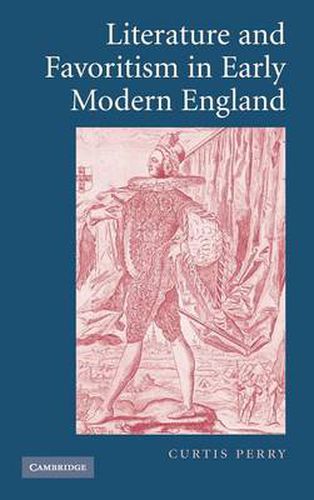Readings Newsletter
Become a Readings Member to make your shopping experience even easier.
Sign in or sign up for free!
You’re not far away from qualifying for FREE standard shipping within Australia
You’ve qualified for FREE standard shipping within Australia
The cart is loading…






For writers in the early modern period, thinking about royal favorites inevitably meant thinking about the uneasy intersection of the personal and the public in a political system traditionally organized around patronage and intimacy. Depictions of favoritism - in a variety of texts including plays, poems, libels, and pamphlets - explore the most fundamental ideological questions concerning personal monarchy and the early modern public sphere, questions about the nature and limits of prerogative and about the enfranchisement or otherwise of subjects. In this study, Curtis Perry examines the ideological underpinnings of the heated controversies surrounding powerful royal favorites and the idea of favoritism in the late Elizabethan and early Stuart period. Perry argues that the discourse of corrupt favoritism is this period’s most important unofficial vehicle for exploring constitutional unease concerning the nature and limits of personal monarchy within the balanced English constitution.
$9.00 standard shipping within Australia
FREE standard shipping within Australia for orders over $100.00
Express & International shipping calculated at checkout
For writers in the early modern period, thinking about royal favorites inevitably meant thinking about the uneasy intersection of the personal and the public in a political system traditionally organized around patronage and intimacy. Depictions of favoritism - in a variety of texts including plays, poems, libels, and pamphlets - explore the most fundamental ideological questions concerning personal monarchy and the early modern public sphere, questions about the nature and limits of prerogative and about the enfranchisement or otherwise of subjects. In this study, Curtis Perry examines the ideological underpinnings of the heated controversies surrounding powerful royal favorites and the idea of favoritism in the late Elizabethan and early Stuart period. Perry argues that the discourse of corrupt favoritism is this period’s most important unofficial vehicle for exploring constitutional unease concerning the nature and limits of personal monarchy within the balanced English constitution.